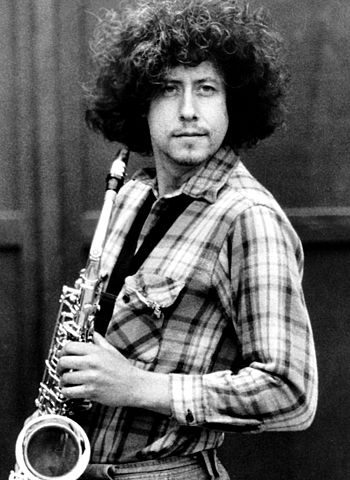Elaine St. George: Happy birthday, Arlo
Our first guest blog post comes from…me, the singing side of me. I don’t blog often as Elaine St. George—come to think of it, I don’t sing often as her these days, either. But I’ll take any opportunity to remind the world about the underappreciated singer-songwriter Steve Goodman. So enjoy this post from July 10th, 2015:
Happy birthday, Arlo
by Elaine St. George

Arlo in 1979, publicity photo from Warner Bros.
It’s Arlo Guthrie’s birthday today. Obviously Arlo holds a special place in the hearts of Steve Goodman fans. His cover of “City of New Orleans” gave Steve his first visibility. Well, as much visibility as a songwriter ever gets when he’s not singing his own song. Even if it’s a hit.
When I bought my first Steve Goodman album in the late ’70s and found “City of New Orleans” on it, I’ll admit I checked the credits twice. Like most of the rest of America, I assumed Steve was covering Arlo’s song. A few years later, of course, that perception changed. When Willie Nelson sang “City of New Orleans” in the mid-’80s, presumed authorship of the song transferred to him. Steve got his first Grammy when Willie’s cover won “Best Country Song.” But by then Steve was no longer around to receive it. He’d died a few months earlier.
And that brings me back to Arlo Guthrie, because in a way it was through him that I rediscovered Steve. Well, not “rediscovered”—I’d never forgotten about him. But that was when I decided to put together a whole show of Steve’s songs. And that show has now turned into an album. But I digress…
(Cue the harp and the wavy focus to signify a flashback…)
Five or six years ago, I did a show in Boston. The venue wanted a longer set than I’d planned so I had to add some material and I thought, “Why not do some songs written by people who live in Massachusetts?” First person who came to mind was James Taylor, but I had trouble finding a second. Then I remembered Arlo Guthrie had written “Alice’s Restaurant” about a place in the Berkshires so I decided he’d be perfect. I couldn’t cover “Alice’s Restaurant”—I didn’t have that much time to fill! But I thought I’d sing “City of New Orleans” and tell a story about how Arlo hadn’t written it, Steve Goodman had.
Being a thorough kind of gal, I researched the backstory and I discovered two things:
- Arlo first heard “City of New Orleans” when Steve had the guts to walk up to him out of the blue in a crowded bar, introduce himself, and ask Arlo to listen to the song. The rest, as they say, is history.
- Steve had the guts to do that because he knew he didn’t have any time to waste. He was dying of leukemia. In fact, he had died in 1984 at the age of 36. And I’d had no idea.
A little more research confirmed that #1 wasn’t exactly the truth. But #2 absolutely was. This guy whose work I loved—whose songs were so full of life and heart—was gone. And I’d missed it completely.
How had I remained so clueless? I’d moved on, listening more to showtunes, the Great American Songbook, and jazz than to the folk music that had sustained me in my teen years. But now that I knew the real story—or something closer to the real story—of Steve’s big break as a songwriter, I thought more people deserved to hear it. And I decided I needed to tell it.
For the record, the real story—as recounted in Clay Eals’s incredibly thorough book Steve Goodman: Facing the Music—is that the meeting was no accident. It was set up by a Chicago club owner who knew Steve had a great song on his hands and wanted to get him a break. The other part of the real story is that Steve only became a songwriter after doctors told him he had leukemia, and maybe only a year more to live. With typical Steve guts, he managed to stretch that one year out to 16.
That resonated with me. No one would have blamed Steve if he’d spent the rest of his life on a beach somewhere. But he insisted on living. And creating. That’s when he turned himself into a songwriter. And that’s how he had the guts to sing his song for Arlo Guthrie. Yes, the meeting was prearranged. But Steve showed up for it. And he kept showing up, until the leukemia finally claimed him.
I don’t know if you’ve ever done anything creative—art, singing, whatever—but it takes courage to stand up there on stage or hang your picture on a wall and say, “This is who I am. This is what I care about.” Steve did that. He seized every opportunity he could to share his work with people. He inspires me as an artist every day. And I hope that by telling his story and singing his songs, I can inspire other people to do whatever seems hardest for them.
All of which is a very long-winded way of saying: Thank you, Arlo Guthrie. You have no idea who I am, but you’ve had an impact on my life. Happy birthday.